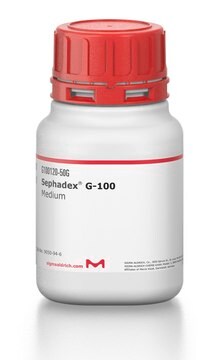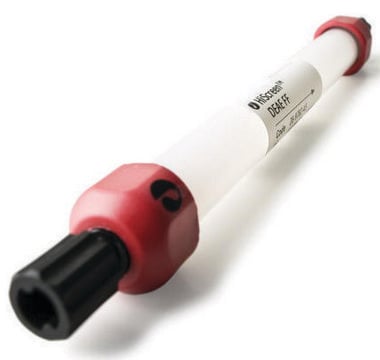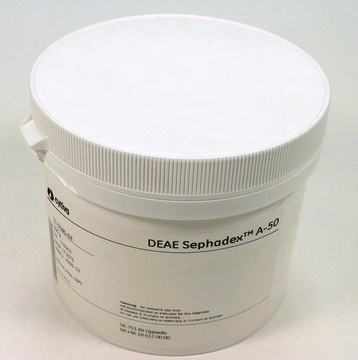DCL6B100
DEAE–Sepharose™
CL-6B
Synonym(s):
Diethylaminoethyl–Sepharose™
About This Item
Recommended Products
form
suspension
technique(s)
affinity chromatography: suitable
matrix
6% cross-linked agarose
bead size
45-165 μm
pore size
~4,000,000 Da exclusion limit
pH
3—12
capacity
130-170 μeq/mL binding capacity (gel volume)(gel volume)
Looking for similar products? Visit Product Comparison Guide
Related Categories
General description
Application
Legal Information
replaced by
Signal Word
Warning
Hazard Statements
Precautionary Statements
Hazard Classifications
Flam. Liq. 3
Storage Class Code
3 - Flammable liquids
WGK
WGK 1
Flash Point(F)
100.4 - 109.4 °F
Flash Point(C)
38 - 43 °C
Personal Protective Equipment
Certificates of Analysis (COA)
Search for Certificates of Analysis (COA) by entering the products Lot/Batch Number. Lot and Batch Numbers can be found on a product’s label following the words ‘Lot’ or ‘Batch’.
Already Own This Product?
Find documentation for the products that you have recently purchased in the Document Library.
Customers Also Viewed
Our team of scientists has experience in all areas of research including Life Science, Material Science, Chemical Synthesis, Chromatography, Analytical and many others.
Contact Technical Service











